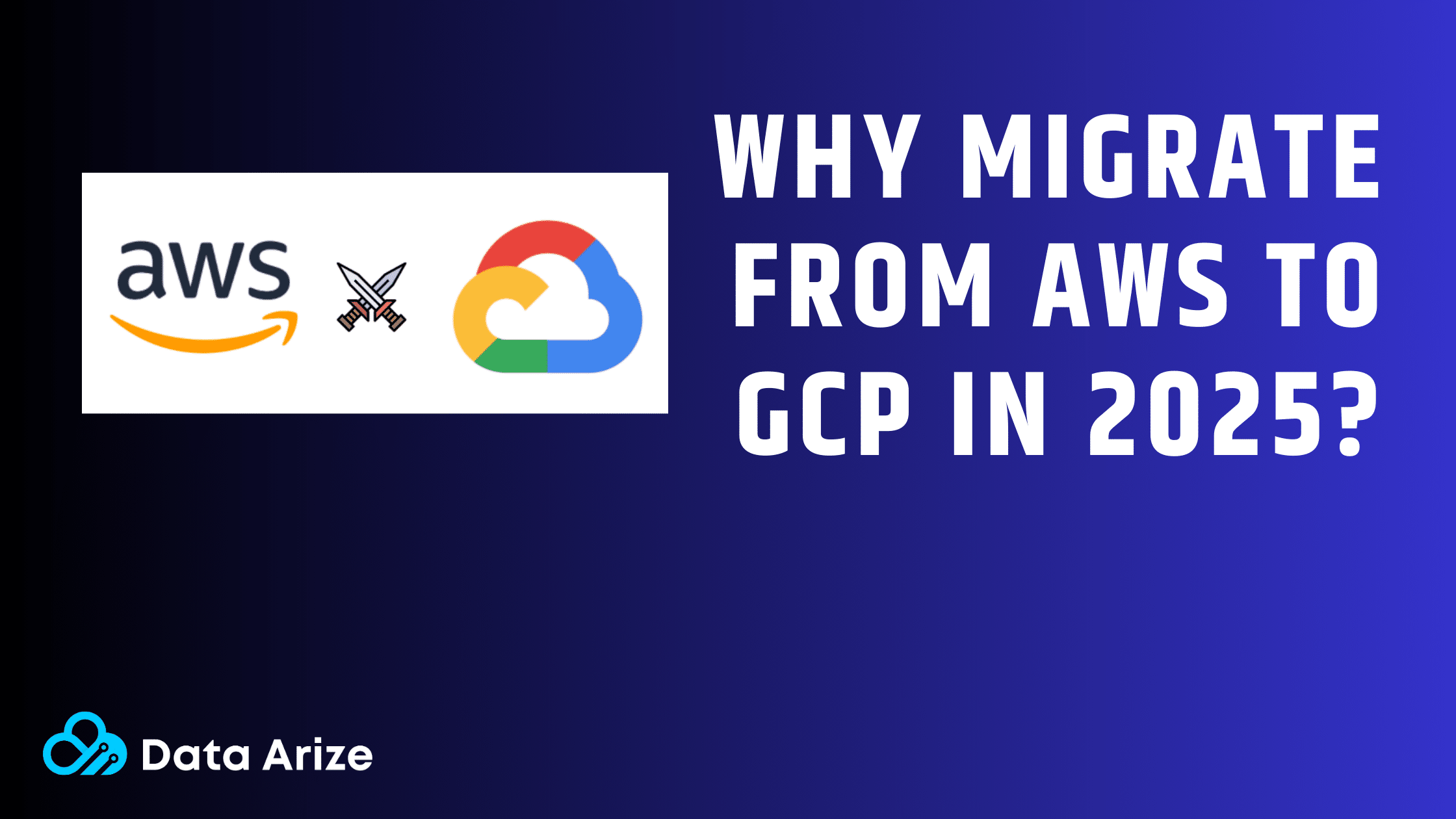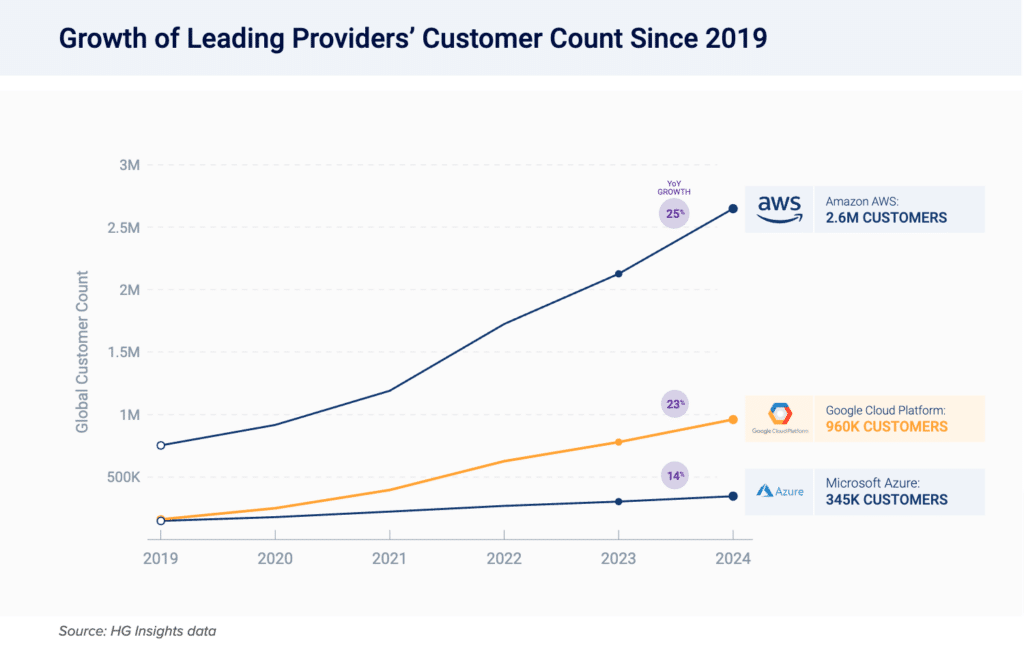Subscribe to our news letter to get the latest on Google Cloud Platform and more!
Best Practices for Cost Optimization in Google Cloud: A GCP Guide 2025
As organizations increasingly migrate to cloud platforms, understanding the intricacies of cost…

As organizations increasingly migrate to cloud platforms, understanding the intricacies of cost…
In the evolving landscape of cloud computing, organizations are increasingly turning to…
Introduction: The Journey from Keys to Federation In the early days of…
Subscribe to our news letter to get the latest on Google Cloud Platform and more!

Cloud computing has become indispensable for businesses striving for innovation, scalability, and efficiency. While Amazon Web Services (AWS) has been a dominant player in the market for years, Google Cloud Platform (GCP) has rapidly gained traction as a viable, feature-rich alternative. If you’re considering a cloud platform shift, this article explores why 2025 might be the ideal year to migrate from AWS to GCP.
Let’s dive into the competitive edge GCP offers, compelling migration benefits, and strategies to ensure a seamless transition.

Amazon Web Services (AWS) was among the first to introduce cloud computing services, offering a vast array of tools for developers and enterprises alike. Google Cloud Platform (GCP), though a late entrant, has leveraged its parent company’s expertise in AI, data analytics, and global infrastructure to emerge as a serious contender.
AWS offers a wide variety of services but can be costly and complex to navigate. On the other hand, GCP is known for its simplified pricing model, cutting-edge innovations, and seamless integration with Google services.
One of GCP’s standout benefits is its transparent and competitive pricing. Unlike AWS, which often has complex pricing tiers, GCP provides pay-per-second billing and substantial discounts for sustained use. This can significantly reduce cloud expenses.
GCP excels in machine learning and AI with tools like TensorFlow, Vertex AI, and BigQuery ML. For businesses aiming to leverage AI, GCP offers unmatched capabilities, outperforming AWS in terms of ease of use and performance.
Google’s global fiber network ensures ultra-low latency, making GCP a top choice for businesses that prioritize performance and speed. AWS relies on third-party ISPs, which may result in higher latency.
Google has been carbon-neutral since 2007 and aims to operate entirely on carbon-free energy by 2030. GCP users benefit from this commitment, as their cloud usage is automatically associated with renewable energy.
In 2025, businesses will continue seeking cost-effective cloud solutions. GCP’s pricing models, including committed use discounts and custom machine types, provide businesses with opportunities to save money.
For example:
| Feature | AWS Pricing (2025) | GCP Pricing (2025) |
|---|---|---|
| Virtual Machines | $0.046/hr | $0.040/hr |
| Data Storage (1TB) | $23/month | $20/month |
| Data Transfer (per GB) | $0.09 | $0.08 |
These savings can accumulate significantly for businesses with large-scale operations.
GCP consistently innovates with features like:
Such tools position GCP as a leader in enabling modern business solutions.
Whether you’re a small-to-medium business or an enterprise, GCP offers distinct advantages:
Several companies have successfully migrated to GCP, citing better cost-efficiency, superior tools, and improved reliability. Notable examples include:

Google provides a suite of tools for seamless migration, including:
Google prioritizes security with:
GCP offers extensive documentation, community support, and professional services to guide businesses through migration. Additionally, training programs like Google Cloud Certifications can empower teams to maximize GCP’s potential.
As industries embrace AI and IoT, GCP provides a platform that integrates seamlessly with emerging technologies. Its continuous innovation ensures businesses stay competitive.
Yes, GCP’s transparent pricing and cost-saving features often make it more economical.
The timeline varies based on workload size but can range from weeks to months.
Most workloads can be migrated, but compatibility assessments are essential.
Yes, GCP leads in AI innovation with tools like Vertex AI and TensorFlow.
With proper planning, disruptions can be minimized or avoided entirely.
Yes, GCP’s Anthos platform enables seamless hybrid cloud management.

Migrating from AWS to GCP in 2025 could be a transformative decision for your business. With its cost advantages, cutting-edge tools, sustainability focus, and superior performance, GCP is poised to be the cloud platform of choice for organizations looking to future-proof their operations.
By planning your migration thoughtfully and leveraging Google’s tools and support, you can unlock new levels of efficiency and innovation.